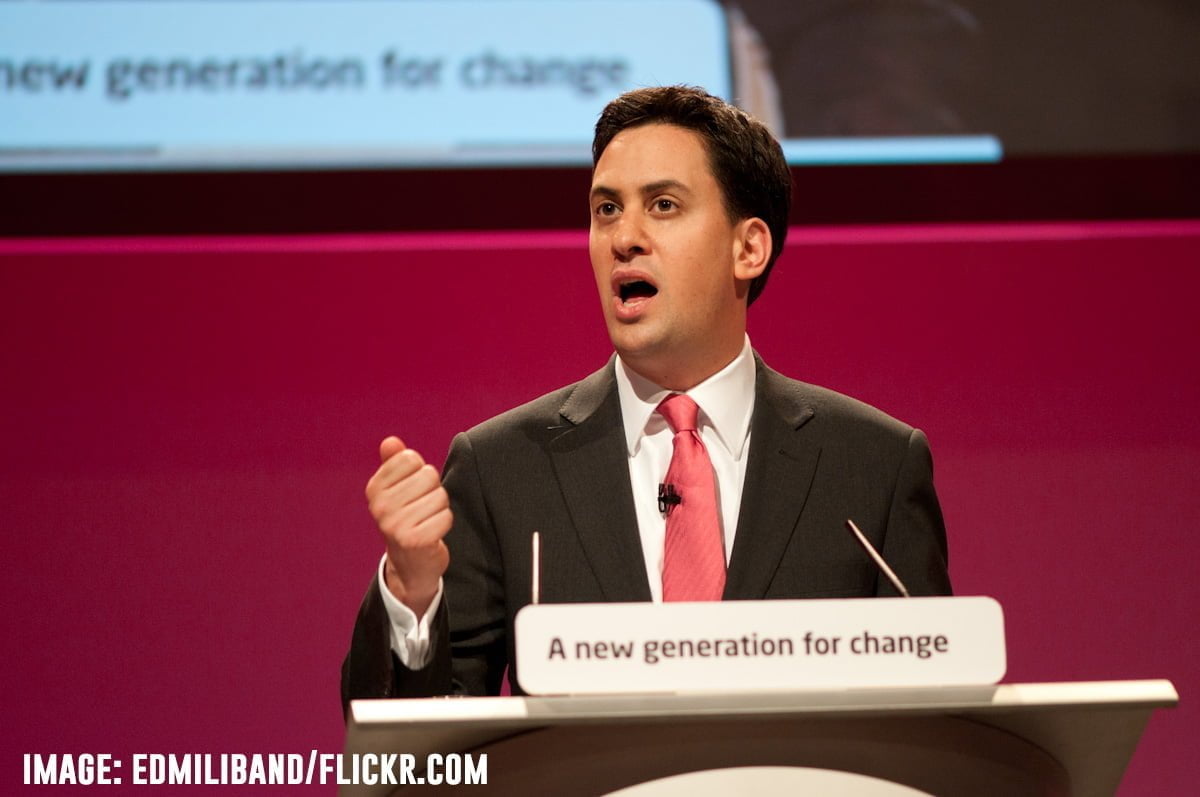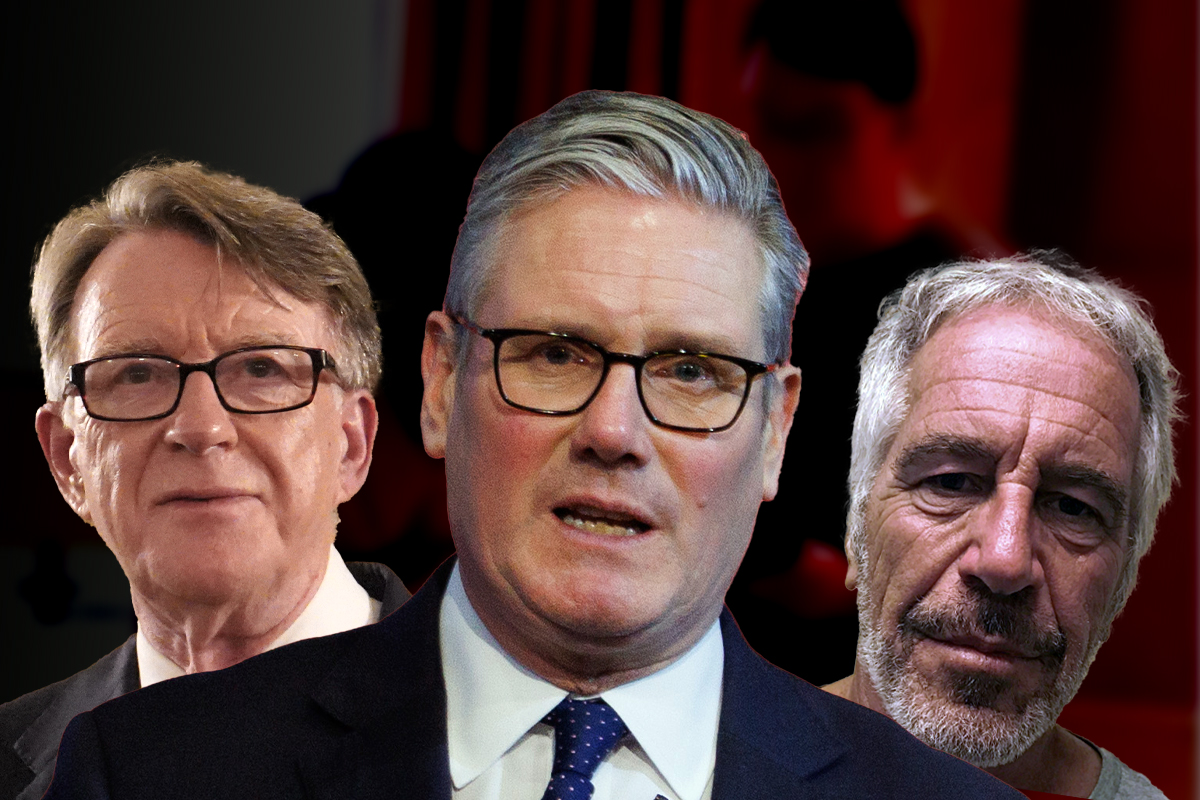With less than 18 months until the next General Election, the past few months have seen the Tories step up their campaign against their main opposition, with a barrage of attacks on those associated with the Labour Party – primarily Unite the Union and the Co-Op Party. But with the Conservatives leading a coalition that is presiding over falling living standards, and which is rightly seen as supporting the bankers and fat-cat energy companies, it seems that the mud being slung by the Tories will not so easily stick.
With less than 18 months until the next General Election, the past few months have seen the Tories step up their campaign against their main opposition, with a barrage of attacks on those associated with the Labour Party – primarily Unite the Union and the Co-Op Party. But with the Conservatives leading a coalition that is presiding over falling living standards, and which is rightly seen as supporting the bankers and fat-cat energy companies, it seems that the mud being slung by the Tories will not so easily stick.
Co-Op and Labour
In the past month, the lightning rod for Tory bile has been Paul Flowers, the former chairman of the Co-Operative Bank, who has faced numerous accusations relating to his personal life and his (lack of) qualifications to have been running the Co-Op Bank.
In attacking Flowers, the Tories and their reactionary mouthpieces in the Daily Mail and the Telegraph have hoped to smear the Labour Party, which receives donations from the Co-Op group, via their long-standing electoral associations with the Co-Operative Party, whose parliamentary candidates have run on a joint “Labour and Co-Op Party” ticket for decades.
With headlines in the Mail, the Telegraph, and the Murdoch-owned Times all denouncing Labour’s links to the disgraced Flowers, Jonathan Freedland in the Guardian (22nd November 2013) wrote:
“Labour officials underestimated how easy it would be for opponents to conflate the Co-op Bank and the Co-operative party, a movement dedicated to the ideal of mutualism and aligned with Labour for nearly a century, and suggest that Flowers’ behaviour was no one-off, but indicative of something rotten in the state of Labour.
“This relied on that deliberately blunt instrument favoured by all smearers: guilt by association. Flowers may have been on the outer edges of the Labour extended family…but the Co-op link was enough for Tory spinners to rebrand him a close “adviser to Ed Miliband”. By the week’s end, readers of the right-leaning press would have been forgiven for assuming that Flowers had a seat at the shadow cabinet table, doubtless sandwiched between Len McCluskey and the ghost of Karl Marx.”
Attacks on Unite
But the more long-term victim of the Tory smear campaign has been Unite the Union, Britain’s largest trade union and the Labour’s biggest donor. From the saga over the Falkirk parliamentary candidate selection process to the prominence of Unite’s “leverage” campaign against the most dubious employers, the Conservatives and their friends in the right-wing press have not missed any opportunity to attack Unite and damage the Labour Party by association.
The Tory tactic has consistently been to paint Ed Miliband as simply a puppet for the malicious intentions of Len McCluskey, the Unite General Secretary, and his union of militant extremists. In highlighting the Unite leverage campaign, whereby Unite organise peaceful protests to draw attention to the practices of the most brutal and immoral bosses, the government hopes to slander Unite as terrorists.
Particular attention was drawn by David Cameron, the Tory Prime Minister, to the leverage protests organised by Unite outside the house of a director of Ineos, the firm that owns the refinery in Grangemouth that was threatened with closure and the resultant loss of around 800 jobs. Unite and McCluskey were accused of “intimidation” and “harassment”, with Cameron calling for an investigation into the use of leverage tactics.
Meanwhile, with a question mark raised over Falkirk, whereby Unite were accused of trying to illegally sway the result of the selection process by surreptitiously signing up Unite members and their families to the Labour Party, the idea of Miliband and Labour being secretly under the control of Unite was reinforced by the Tories and the right-wing media. In this campaign against Unite, the Tories have been helped by the Blairites of Progress and New Labour, who would be all too happy to see the influence of the unions on the Labour Party reduced.
The impression the Tory press wish to drive home is that of a Labour Party ridden with scandal; a party that is morally bankrupt, seeped in sleaze and corruption; an organisation dominated by thugs and extremists. In doing so, the capitalists hope to put pressure on the Labour leaders, sow hysteria and panic, and drive a wedge between Labour and the public. The Daily Mail, a reliable mouthpiece of the reaction, exemplifies these tactics of the Tories, by stating (21st November 2013):
“From the Falkirk vote-rigging scandal to claims of ministers covering-up needless deaths on the NHS, Labour is facing the most grave allegations over its conduct.
“Which is why the Mail repeats: If Mr Miliband really does believe in upholding the highest standards of integrity and conduct in British political life, shouldn’t he support an inquiry into his own party’s morality, practices and culture without delay?”
Tory tactics backfire
But these constant attempts by the Tories to discredit the Labour Party via their union and Co-Op links have failed to have the desired effect. Far from damaging the reputation of Unite and McCluskey, the criticisms against Unite regarding their leverage tactics have only served to help the union gain support amongst the public. Ordinary workers across the country can empathise with the attacks that their fellow workers at Grangemouth have had to endure, and will sympathise far more with these protesting union members than with the bosses such as Jim Ratcliffe of Ineos, who are ultimately the truly guilty ones when it comes to accusations of intimidation and harassment, with their threats of lockouts, closures, and job losses.
Meanwhile, the workers at Grangemouth – along with trade unionists across the country – will have seen the defeat at the refinery, due to the capitulation by Len McCluskey in the face of a fight, and will have come to the conclusion that – far from being too militant – the Unite leadership was not militant enough. The leverage tactics, whilst helping to apply some pressure on the bosses, are no substitute for real mass action: for factory occupations to fight any attempts at a lockout; for secondary pickets and solidarity strikes across the rest of the sector; for the call to nationalise any industries faced with closure.
In using the Falkirk issue as a stick to beat Miliband with, the capitalist press and the Tory leaders hope to drive a wedge between the unions and the Labour Party. Ultimately this strategy is driven by the ruling class’ recognition of the growing anger in society against the bosses, bankers, and big business, and their fear that these pressures and moods of discontent will be transmitted into Labour Party policy via its connection with the unions. As Seamus Milne comments in the Guardian (13th November 2013):
“The aim is clear enough: to portray the Labour leader as hopelessly in hock to trade unions (which in reality have remarkably little influence on Labour policy), while diverting attention from falling living standards – and the commanding grip of the far more powerful City and corporate interests on the funding of the Conservative party.
“But the onslaught on Unite isn’t only about Labour, let alone the storm in a Falkirk teacup. McCluskey’s union, the strongest in the private sector, has shown that its combative tactics have delivered results. Its “leverage strategy” – what the Mail calls terrorism – aims to offset industrial weakness by targeting the suppliers, customers and shareholders of recalcitrant employers with lobbying and demonstrations. To their dismay, it has proved effective: from Honda and London buses to construction and Crossrail.
“Not only that, but Unite has gone out on a limb to demand the collective working class political voice squeezed out of the Westminster and media magic circle for a generation – which is what lies behind Falkirk. And, with other unions, it is one of the only organisations with real social weight and resources that opposes an entrenched neoliberal consensus and corporate elite.
“So it’s no wonder those vested interests that benefit want to cut Unite down to size. The Sunday Times worries about the “shift to the left” in public opinion it fears Miliband is tapping into. The only way the Labour leader can head off Cameron’s Unite propaganda war is to get off the back foot and turn the tables on the City and big business lobbyists that stand behind the prime minister and his party.”
It is clear, however, that the smears in relation to Labour, Unite, and Falkirk will not work here either. Not only have Unite been officially cleared of any wrongdoing in the case of Falkirk, but McCluskey and other trade union leaders have resisted any attempts to dilute the influence of the unions over the Labour Party and its policy, with the Unite General Secretary re-affirming Unite’s political strategy to send union activists into the Party to “win working people to the Labour Party and win the Labour Party to working people”.
If anything, the Falkirk issue has helped to expose the limitations of Unite’s current political strategy. The lessons of Falkirk, in this respect, highlight the need for trade union members to be politically active at every level of the Labour Party, and for this involvement in the Party to be done on the political basis of arguing for socialist ideas. Again, far from the Labour Party being “under the control” of the unions, the trade unions – and the working people that they represent – still do not find their interests genuinely represented by the current Labour leadership.
Tories expose their own weaknesses
Importantly, the consistent attacks against Labour and its affiliates have only served to highlight the class interests that the Tories represent. Cameron and Osborne’s support for the fat-cat energy companies will not have won them any sympathies from ordinary working class families, who have felt a squeeze on household budgets whilst the energy bosses laugh all the way to the bank with increased profits.
Meanwhile, the accusations that Labour are in the pockets of the trade union leaders due to their reliance on union funding has only drawn attention to the main donors of the Conservative Party: the City of London and the various spivs and speculators contained within. Over 50% of Tory funding comes from these banks and investment firms; in this sense, the class interests that the Tories represent – that of the 1% – are no hidden secret. In contrast, and despite the attempts of the Tories and Blairites, the Labour Party remains, via the trade unions, the political voice of the organised working class, albeit with a leadership – in the form of Miliband and co. – that is completely out of touch with the people it is supposed to represent.
Attempts to paint the trade unions as beasts of a bygone age find little truck with ordinary people either. With falling living standards and attacks on wages, jobs, pensions, and public services across the board, the vast majority of people can empathise with the growing number of striking workers – including the teachers, firefighters, postal workers, and lecturers – who have taken action lately. Meanwhile, public support for nationalisation, public ownership, and government intervention in the economy increases every day as the crisis and failure of capitalism continues.
At the opposite end of the spectrum, the support amongst the public for the bankers and bosses that the Tories represent could not be worse. In a report published earlier this year by opinion pollsters YouGov about public trust in banking, it was stated that:
“73% describe the reputation of banking as bad. This is the highest figure of 26 industries we tested. Utilities such as gas, electricity and water come second, some distance away on 62%. Just 4% reckon banks observe high ethical and moral standards – a joint-worst rating shared with casinos, betting shops and online gambling. Just 17% of us trust the people running British banks to tell the truth; with investment bankers the figure is even lower, at 13%. They vie with MPs, estate agents and tabloid journalists in the relegation zone of public contempt.”
In addition, it was found that 83% agreed with the statement that “bankers are greedy and get paid too much”; 58% agreed that “bankers are at best unprofessional and at worst dishonest”; and a stunning 80% agreed with the idea that “banks aren’t doing enough to get us out of this economic crisis which they helped cause”. Since this report was published, the scandals surrounding the energy companies have propelled the energy bosses to the top of the podium in terms of the most hated figures in society, joining their friends in the City in the pantheon of publically hated people.
In a separate survey by NatCen Social Research, it was found that in 1983, 90% of people felt the banks were well run, compared to just 19% today. Over the same period, support for the trade unions increased, despite the constant attempts by the capitalist press to write them off as being an anachronistic irrelevance.
On top of the obvious connections between the Conservative Party and the bankers and big business, there are the more personal ties between the Tory leaders and the corrupt layer of the establishment whose stink and stench reeks all the more every day as their utter rottenness is increasingly exposed. At a time when Cameron and co. are trying to attack the Labour leaders for their tenuous links to Paul Flowers, these Etonian Toffs are attempting to quietly hide their own privileged backgrounds, not to mention their connections to scandal-ridden figures such as Rebekah Brooks – former editor of the News of the World – and the rest of the Murdoch mafia.
Fight back with socialist policies
With some left noises being made by Miliband, and with capitalism unable to provide any hope or future for ordinary people, Labour’s lead in the polls remains solid, despite the Tory smear campaign. Osborne, the Coalition Chancellor, has tried to rally behind the public behind the Tories with announcements of “economic growth”. But all talk of a recovery is rightly seen as being just hot air and is in contradiction with the experiences of the majority of workers and youth, who see nothing but declining wages, rising debts, and bleak employment prospects. Osborne patronisingly emphasised this point by having the audacity to talk of “growth” and “recovery” in his Autumn Statement on the economy in one sentence, whilst outlining plans for further cuts to public spending and increases to the pension age in the next.
Instead of capitulating to Tory taunts, Ed Miliband and the rest of the Labour leaders should hit back by committing to a socialist programme. Rather than giving up without a fight, as happened at Grangemouth, McCluskey and the rest of the union leaders should call for mass militant action – beginning with a one-day general strike – to galvanise and mobilise the entire labour movement against the Coalition’s austerity programme, arguing for an alternative of socialist policies.
Opinion polls show that the public is far to the left of the Labour leadership and supports the idea of nationalisation of the banks, railways, energy companies, etc. From this, it is clear that a socialist programme – of democratic and public ownership of the banks, infrastructure, and major monopolies – would chime with the mood in society and the anger that exists against capitalism, which has nothing to offer other than cuts and attacks on living standards for the vast majority of people.
The Tories have shown clearly which class they represent. In doing so, they have exposed their own weakness as defenders of system that – as is becoming increasingly evident – cannot take society forward any longer. It is time for the trade union and Labour leaders to go on the offensive, fight for the socialist transformation of society, and represent, as Marx said, “the revolutionary class – the class that holds the future in its hands”.






